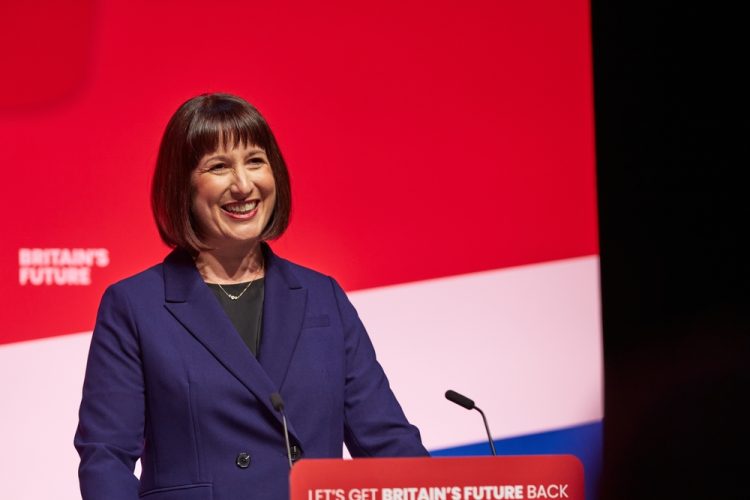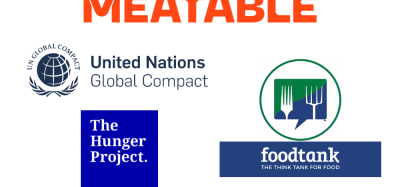Perpetuating a cost-of-living challenge
- Like
- Digg
- Del
- Tumblr
- VKontakte
- Buffer
- Love This
- Odnoklassniki
- Meneame
- Blogger
- Amazon
- Yahoo Mail
- Gmail
- AOL
- Newsvine
- HackerNews
- Evernote
- MySpace
- Mail.ru
- Viadeo
- Line
- Comments
- Yummly
- SMS
- Viber
- Telegram
- Subscribe
- Skype
- Facebook Messenger
- Kakao
- LiveJournal
- Yammer
- Edgar
- Fintel
- Mix
- Instapaper
- Copy Link
Posted: 21 November 2024 | Dr Clive Black | No comments yet
Clive Black examines the consequences of Rachel Reeves’ Budget on the UK food system, warning of higher food prices, reduced consumer choice, and a challenging road ahead for businesses and households alike.


The UK food system approached the Rachel Reeves Budget with its eyes open, understanding of the pretty dire situation that she inherited from what was in effect a dysfunctional Tory party. It understood that it has to play its part in the aspired self-improvement of the country, one where despite expending more money than ever, most public services deliver a poorer result. That collapse in productivity is not a luxury that the British food sector is afforded, but the industrialists knew that change was necessary.
Unexpected tax hikes and wage increases leave businesses reeling
Whilst eyes were wide open, the Chancellor put pins in them with the much larger than expected increases in National Insurance Contributions (NIC), especially the lowering of the applicable threshold for payment by employees, whilst the 2024-25 National Living Wage (NLW) award, a 6.7% increase, was also towards the higher end of most folks’ expectations. Additionally, the retail segment feels pretty aggrieved that It was led a bit of a merry dance on business rates, one where the online channel will have been doing a bit of a jig post Reeves’ speech; Amazon comes out on top again.
Further up the food chain, farmers have genuinely been shocked by the inheritance tax adjustment, that has the basis to cause much stress for the future of genuine family farms, not the Clarksons of this world, something that could yet be a real threat to the security of food supply in the UK, the only policy arena that mentions food within the hugely underwhelming DEFRA. Ideology and, being kind, naivety, are blending into something of a political car crash for the British food system.
The trade has let Ms., Reeves and her Business Secretary, Jonathan Reynolds, know what’s what, but their scowls will most likely fall on deaf ears, Labour has a majority that means that it can and is doing as it wants. Accordingly, what therefore grips most with business is not that they should pay their way, but the near total absence of any real seriousness around improving the productivity, the output, of the public sector from the material increase in corporate taxation. Indeed, the faith that public agencies, bodies, and civil servants have the first clue about how to effectively expend c£100bn in capital is virtually nil, based on the fact that little in Britain works, is produced on time or to budget, a Tory legacy.
Business concerns over public sector inefficiency and corporate taxation
Whilst the Chancellor can raise her funds from those with broad shoulders, the implication that such people do not work being unnecessary salt in the wounds, there is a reality here where The Treasury, which the First Lord of the Treasury leads, is seeking to deceive the public. The food industry is very competitive and significant elements of it do not earn great returns on the monies invested to create the firms in the first place; after taxation, Tesco shareholders take between 2.5-3.0p in the pound of its sales, half of which is re-invested back into the business on compliance with regulations, keeping stores up to date and maintaining technological progress, talk of supernormal profitability is total tosh.
No, the Government’s decisions to increase NIC and the NLW, amongst other things, will have implications for the British consumer, most clearly in higher food prices, UK food inflation will be higher for longer as a result of the Budget. Food is an essential item, which means households will, therefore, have less to expend on discretionary items.
The impact of rising costs on food prices, businesses, and consumer choice
Additionally, in fuelling inflation, the Bank of England will not be able to reduce interest rates as quickly as it has previously signalled. So, mortgage holders will be paying more for their homes than otherwise would have been the case. Additionally, there is a real risk that choice, especially in the Food & Beverage arena, may further diminish as cafes, coffee shops, restaurants, public houses and so forth close because they cannot put up prices anymore, demand is not there, but the State is ramping their cost base higher.
Rachel Reeves’ Budget has many consequences for the British food system, one of which is higher food prices for the whole population. As firms come to terms with a further structural increase in their cost bases, it can also be expected to deploy less labour and more capital, so shedding people whilst consumer choice can also reasonably be forecast to decrease as small firms on high streets and shopping centres capitulate. Well done!
Should the productivity of the public sector in the UK materially improve here on, then such outcomes may actually be a price worth paying, Britain would be a better place to live and maybe invest. However, whilst there are many good public servants, loyal and dedicated, there are far too many playing the system, taking the piss, so making it likely that this pampered, bloated and poorly performing component of the UK will be a self-serving sponge, the antithesis in fact of ‘public service’.
When shoppers and consumer groups speak to higher food prices in 2025 and into 2026, there is one way to point the finger as Labour perpetuates the cost-of-living challenge, and not the supermarkets and their supply chains.
About the author











